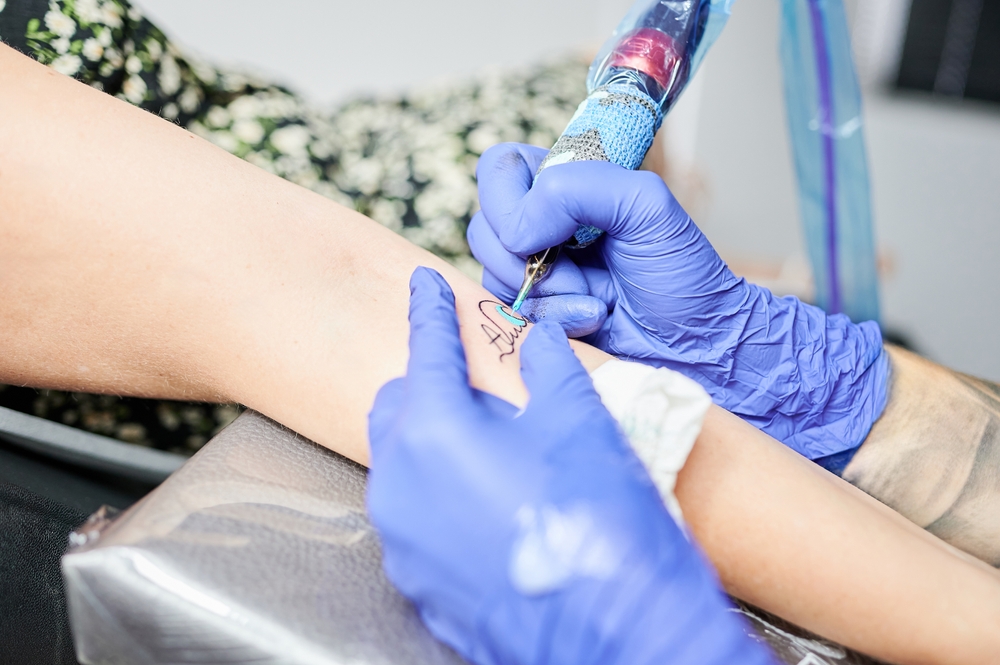Skin care for tattoos: Getting a tattoo is cool but it also involves risks if hygiene and safety measures are not followed properly. Here are a few hygiene practices that you should expect to protect your health while getting a tattoo.
Tattooing involves breaking the skin, which can expose the body to infections, bloodborne diseases, and other health complications if the tattoo artist does not follow stringent safety protocols. The art involves using needles to inject ink beneath the skin, making it an invasive procedure. There’s a significant risk of infection or transmission of blood-borne diseases like hepatitis B, hepatitis C, or HIV, if hygiene is not maintained during the process.
Unclean practices can result in allergic reactions to inks or equipment, leading to longer healing times or scarring, says Lokesh Verma, Founder, Devil’z Tattooz, New Delhi. Verma shares some hygiene and safety practices you must ensure during your tattoo session:
Personal equipment: Tattoo artists should always wear personal protective equipment (PPE) such as disposable gloves, masks, and aprons to prevent cross-contamination. Gloves should be changed every time the artist touches any non-sterile surface, such as furniture or their phone, and between different stages of the tattoo process. Masks are especially important to prevent the spread of airborne germs, while aprons protect the artist’s clothing from contamination. If your tattoo artist uses their phone while wearing gloves and doesn’t change them afterward, bacteria from the phone could be transferred to the open skin.
Personal hygiene: Artists should wash their hands thoroughly with antibacterial soap before and after each tattoo session. Proper handwashing minimizes the chances of transferring germs from one client to another or contaminating tattoo equipment. Hand hygiene isn’t just a one-time process; it must be maintained throughout the day. Check if the artist uses hand sanitisers after every session and maintains high hygiene standards, even when handling non-tattoo-related tasks.
Use disposable items: To avoid cross-contamination, tattoo artists should use single-use, disposable items such as needles, gloves, ink caps, and dental bibs. These items should be disposed of immediately after use to prevent the spread of infections. Ensure that the artist opens fresh, sterilised needles and ink in front of you to guarantee they haven’t been used previously. Pay attention to whether the artist places used needles directly into biohazard disposal bins, as this is essential for proper health safety.
Follow proper aftercare instructions: Aftercare plays a significant role in preventing infections after you’ve left the studio. Tattoo artists must provide clear instructions, including cleaning your tattoo, applying recommended aftercare creams, and avoiding scratching the area. You should also be informed about signs of infection (redness, swelling, or unusual discharge) and the steps to take if complications arise. Use non-fragrant antibacterial soap to wash the area and follow the artist’s specific aftercare guidelines to promote faster healing.
Studio cleanliness: The hygiene of the studio is just as important as the cleanliness of the tools. A tattoo studio should be thoroughly cleaned and disinfected regularly to avoid bacteria lingering in the environment. The workspace should be spotless, including tattooing chairs, tables, and equipment stands. Clutter and dirty surfaces are red flags for poor hygiene practices. A studio that smells of strong cleaning products like disinfectants shows a higher likelihood of maintaining proper cleanliness.
Client health screening: Tattoo artists should screen clients to check for any underlying health conditions that could affect the tattooing process. For example, clients with diabetes or blood disorders might need extra precautions to prevent complications. Additionally, if a client has an infectious disease, artists need to take heightened protective measures to avoid contamination. Be transparent with your health history to help the artist make informed decisions and ensure your safety.
Disinfecting workstations: All surfaces, including tattooing beds, chairs, and hand rests, must be thoroughly disinfected after each session. Ensuring that the work area is sterile helps prevent cross-contamination between clients.








